'However you view Oleg Tinkov you cannot see his departure as anything but bad for cycling'
Velon CEO Graham Bartlett sees Oleg Tinkov's departure from cycling as bad for the sport, but a potential wake-up call for those in the sport to work together on its future
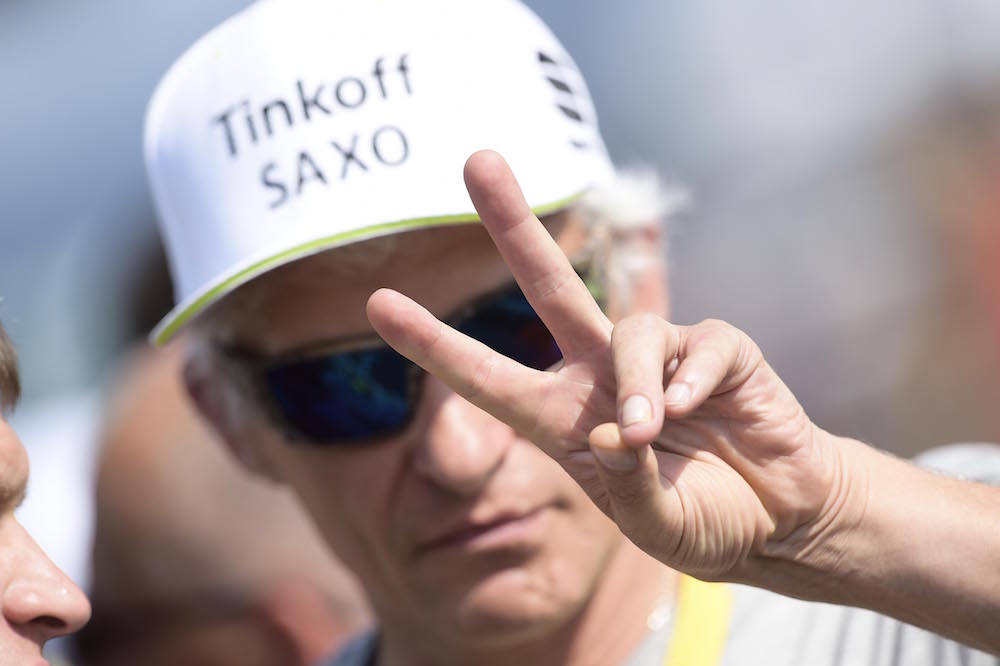
Oleg Tinkov at the 2015 Tour de France (Sunada)
Love him or loathe him, Oleg Tinkov will be missed in cycling when he departs at the end of 2016, or at least his passion for cycling and his willingness to pump money into the sport will, according to Velon CEO Graham Bartlett.
The Russian millionaire has divided opinion during his tenure as a team owner, first with Tinkoff Credit Systems and more recently with the Tinkoff team. It's not just the fans whose feathers he ruffles either, its fellow team owners, rival sponsors and even the sport's governing body the UCI.
As one of the founding members of Velon, the Tinkoff team will be missed by the organisation if, as is likely, it folds at the end of the season. Speaking to Cycling Weekly, Bartlett explained how the organisation is pushing for similar reforms in the sport that Tinkov has been calling for for years.
>>> Oleg Tinkov: ‘I never regret the tweets I send’
While some sponsors are pulling out of cycling because of the numerous drug scandals seen in the past decade, others, like Tinkov, simply no longer see any financial benefits of supporting cycling in its current form.
"However you view Oleg Tinkov as a person, you cannot see [his departure] as anything but bad for cycling," Bartlett says.
"Here's somebody who's made an enormous amount of investment in cycling who's now leaving the sport. How could anybody view that other than that's bad?
Get The Leadout Newsletter
The latest race content, interviews, features, reviews and expert buying guides, direct to your inbox!
"Personally, I'm very sorry to see [him pull his investment] and I think the sport needs to look long and hard at itself and say, 'why is that happening?'
"And this is not the first time this has happened. You can go back to HTC, you got back to other teams that were there and are now not there – it's incredibly damaging to the riders – what happens to those riders when that team folds?
"These people, they've got families, they've got mortgages, what happens if that can't continue? The staff, the people that work there – it's just wrong."
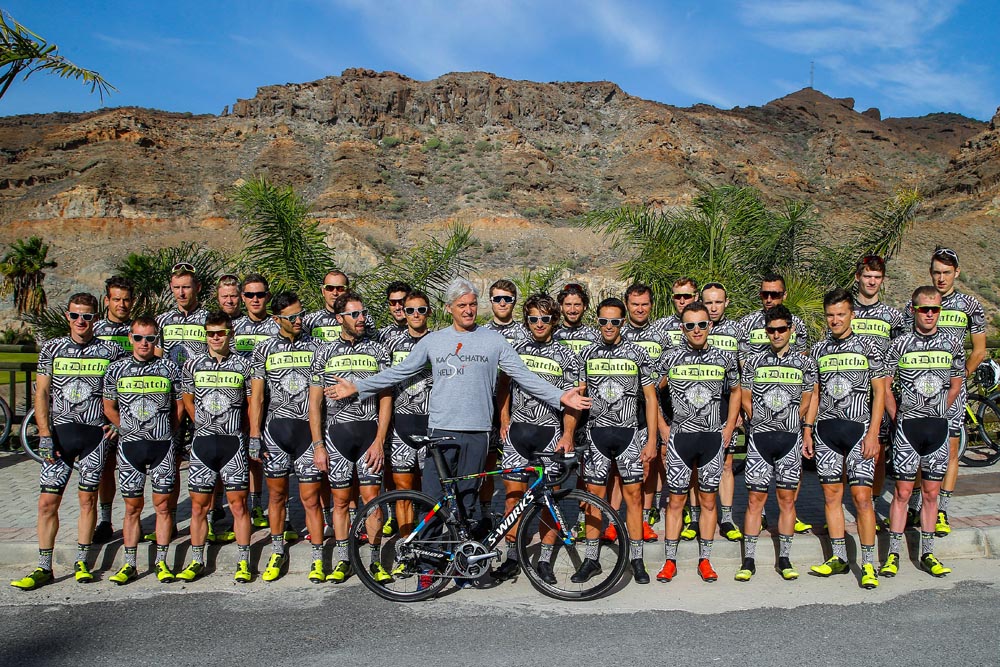
According to Tinkov himself, he has spent over €60m on supporting cycling over the past decade. The economic situation in Russia has forced Tinkov, who has reportedly seen his wealth drop from $1.4bn to $500m during the recent global recession, to reassess his sponsorship commitments.
But another key factor in his departure is his opinion that no-one in cycling wants to work with his ideas of how to improve the business model of the sport.
>>> Bjarne Riis won’t be buying back former team from Oleg Tinkov
Bartlett agrees that the business model of cycling is not sustainable. Sponsors like Tinkov put money into the sport and don't necessarily see a return on that investment. After all, not all sponsors are in love with the sport of cycling as much as Oleg Tinkov - many of them are investing purely for business.
"I think it's incredibly difficult to have a sporting business model whereby you rely upon somebody to constantly put money in and not give them any opportunity to [work on it as] a long-term investment," he says
"That needs to change and I completely agree with the comments Oleg has made about that. They are essential to why Velon was created - to change that business model and [I believe] we can.
"I think it will come too late for Mr Tinkov but we've got to carry on that work because we've got to believe that eventually, one day, we will fix it."
>>> Velon interview: Can it give fans what they want with promises of on-screen data?
Cycling is pretty unique in the way it attracts money. Unlike sports like football, the vast majority of spectators at a cycling race will not have paid money to be there. Some won't invest in the sport at the merchandise stalls, or in the town or city that the race passes through in the bars and cafes.
Towns pay significant sums of money to host the start or finish of a stage of the Tour de France, but much of that money goes towards staging the race in the first place. For every big race like the Tour de France, which probably makes a fair amount of money each year, there are dozens of races that struggle to break even.
>>> Segafredo owner not afraid to invest in cycling as other sponsors walk away
The fact that the system is so fragmented is one of the main problems with cycling's long-term stability, according to Velon, and Bartlett is keen to bring all interested parties towards one common position to work together on making the sport a more viable business investment.
Bartlett says: "If you look at models in other sports you see a joined-up business plan across the board that benefits each of the different stakeholders. That means they've all got a common interest to drive the sport forward.
"In cycling, you've got an incredibly fragmented structure where they do not link up together and that stops the sport from moving forward both from a business, but also from a fan perspective.
"Why has there not been the investment in technology in cycling? The answer to that, to me, is very, very clear – cycling is fragmented.
"If one team said, 'we're going to take this on,' or one rider said, 'I'm going to take this on and do it,' he couldn't do it. If one organiser said, 'I'm going to take this on and do it,' it's very, very hard.
"What it needs is for the whole sport to say, ‘this is how we're going to do it, we'll all take it on.'
"But to do that you need to have a common position to make it work and that's what we want bring about."

Thank you for reading 20 articles this month* Join now for unlimited access
Enjoy your first month for just £1 / $1 / €1
*Read 5 free articles per month without a subscription

Join now for unlimited access
Try first month for just £1 / $1 / €1
Stuart Clarke is a News Associates trained journalist who has worked for the likes of the British Olympic Associate, British Rowing and the England and Wales Cricket Board, and of course Cycling Weekly. His work at Cycling Weekly has focused upon professional racing, following the World Tour races and its characters.
-
 FDJ-Suez, SD Worx-Protime, Lidl-Trek confirmed for Tour of Britain Women as strong list of teams announced
FDJ-Suez, SD Worx-Protime, Lidl-Trek confirmed for Tour of Britain Women as strong list of teams announced18 teams set to take part in four-day WorldTour stage race
By Tom Thewlis
-
 Cyclists could face life sentences for killing pedestrians if new law passed in England and Wales
Cyclists could face life sentences for killing pedestrians if new law passed in England and WalesReckless cycling currently carries a maximum two-year jail term
By Tom Thewlis
-
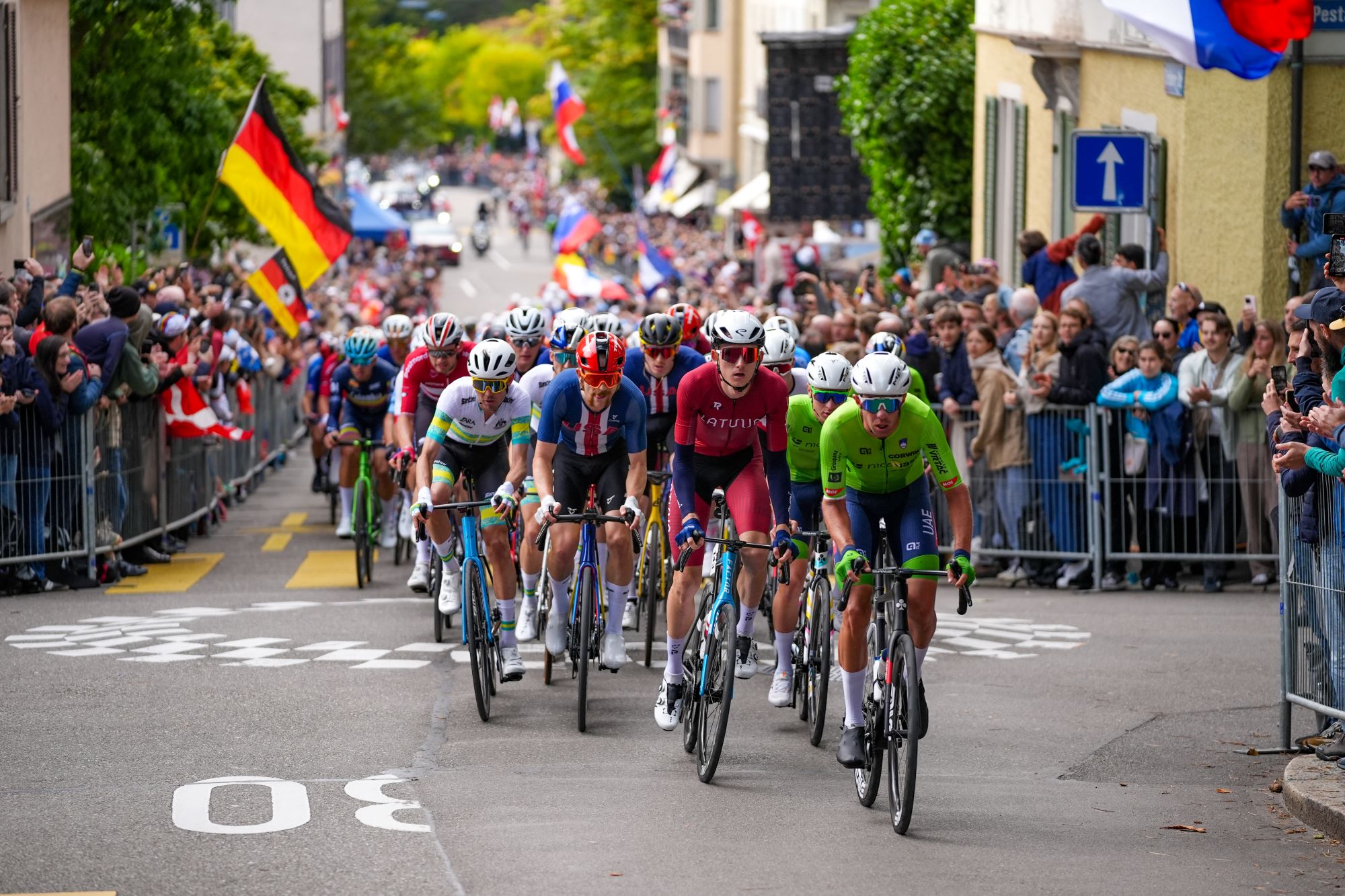 UCI president says there is 'no plan B' for Rwanda World Championships after European Parliament calls for cancellation over conflict
UCI president says there is 'no plan B' for Rwanda World Championships after European Parliament calls for cancellation over conflictThe Road World Championships are due to be held in Kigali this September, but Rwanda is involved in armed conflict in the neighbouring DRC
By Tom Thewlis
-
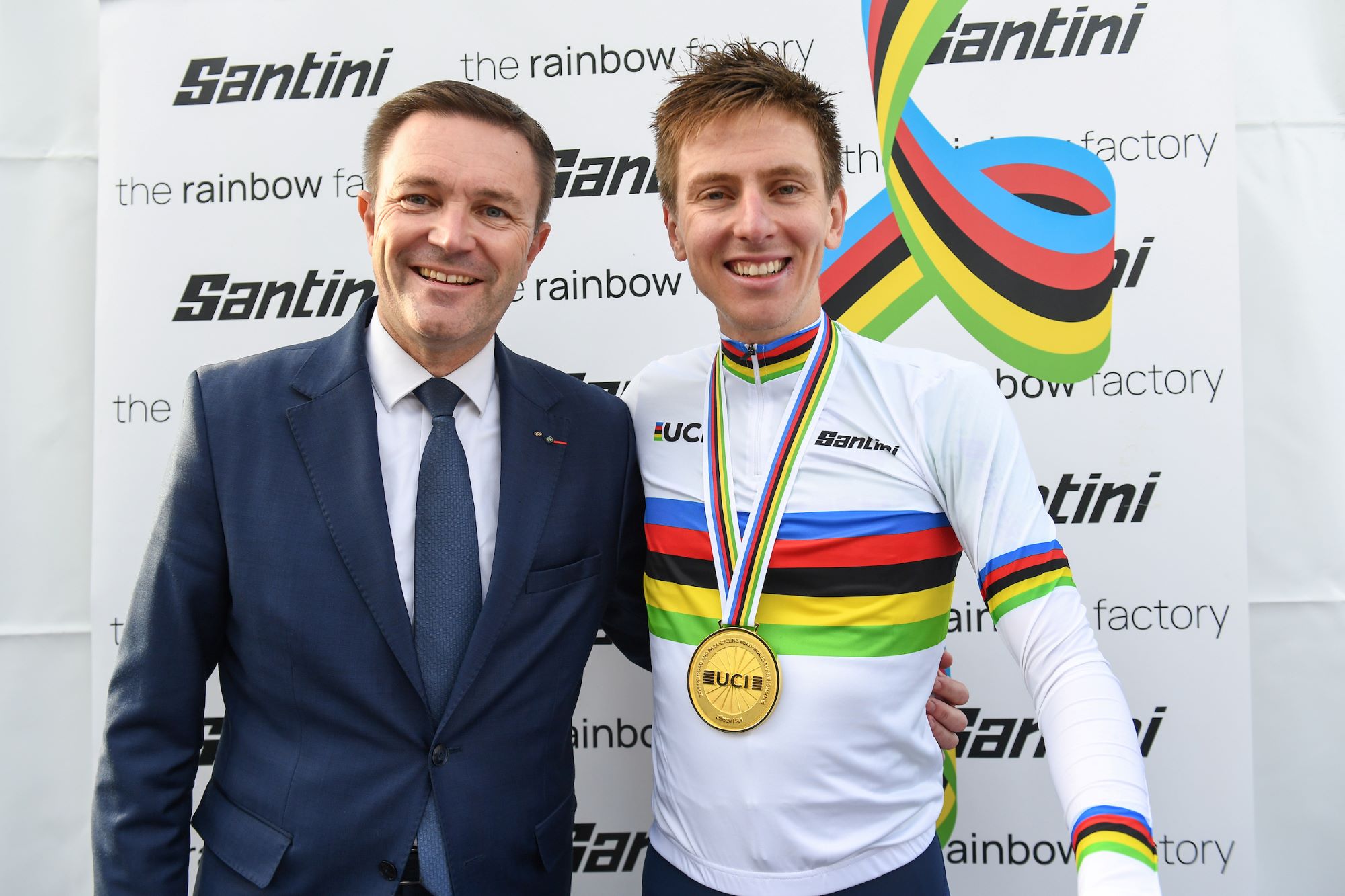 No change to Rwanda World Championships planned after violence breaks out on border with DR Congo, UCI says
No change to Rwanda World Championships planned after violence breaks out on border with DR Congo, UCI saysWorld governing body 'closely monitoring' situation in east Africa with showpiece event set to visit Rwanda in September
By Tom Thewlis
-
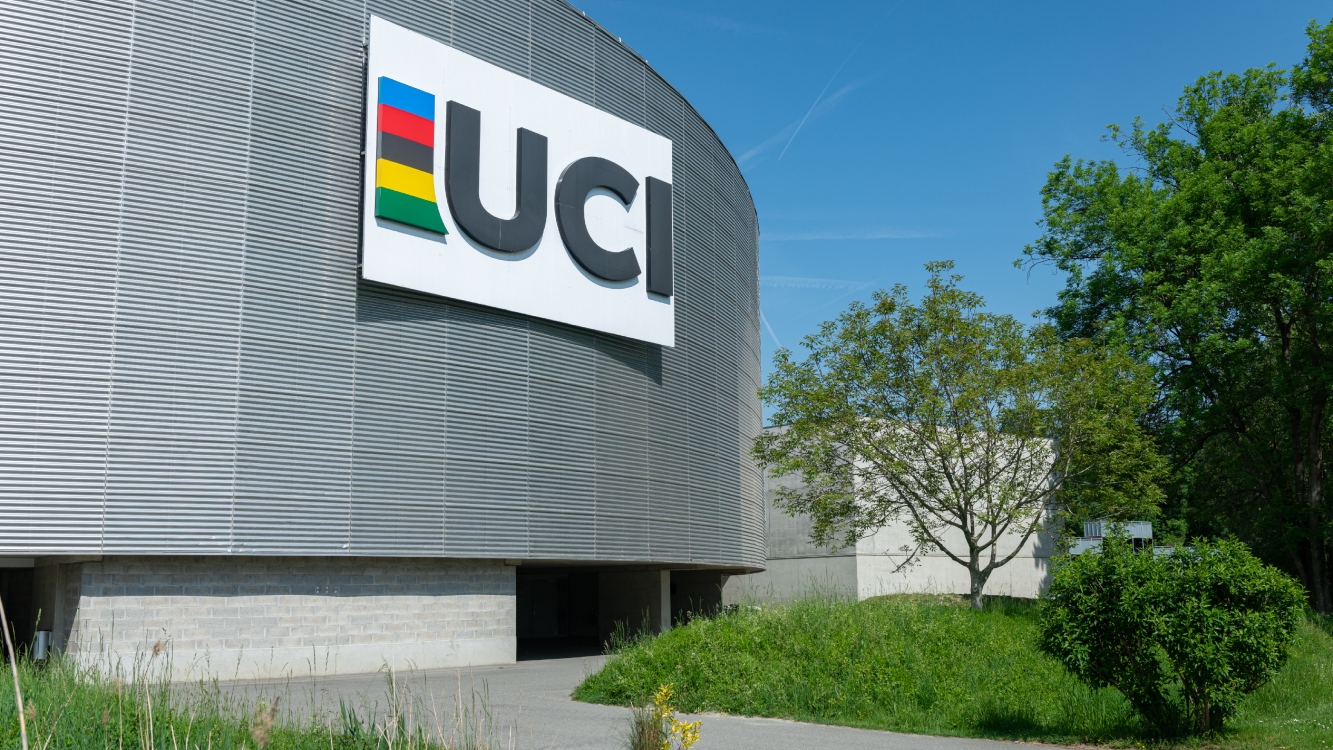 UCI confirm investigation launched into 'unapproved' frameset used by Saint Piran
UCI confirm investigation launched into 'unapproved' frameset used by Saint PiranBritish team glued fake UCI compliance labels to open mould frames purchased from far east
By Tom Thewlis
-
 Have information about motor doping in cycling? The UCI will now pay you
Have information about motor doping in cycling? The UCI will now pay youThe UCI hopes that informants and whistleblowers will increase their knowledge of "new and innovative – and hard to detect – technology in bikes."
By Chris Marshall-Bell
-
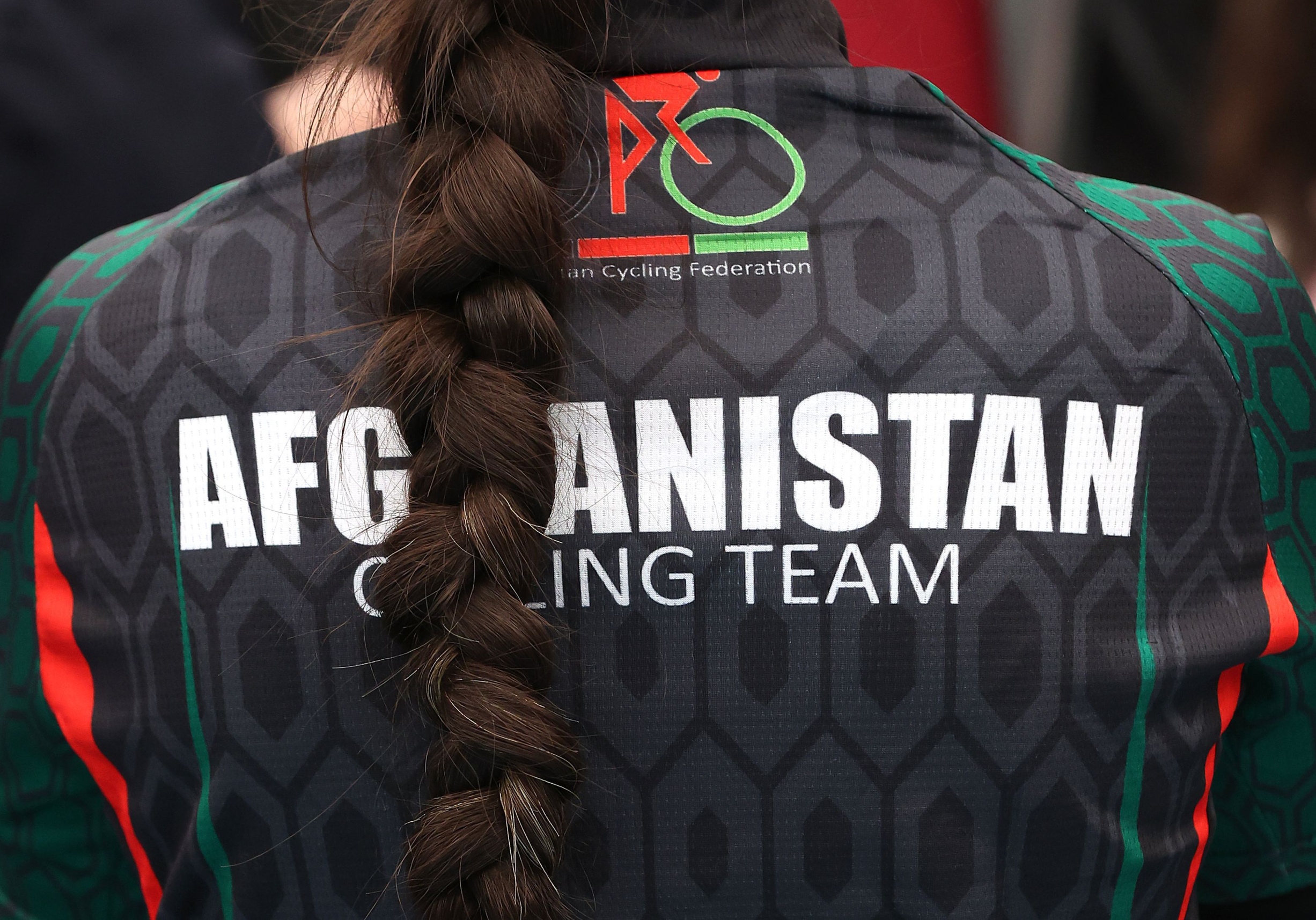 Afghan Cycling Federation president suspended over 'abusive' messages
Afghan Cycling Federation president suspended over 'abusive' messagesUCI bans Fazli Ahmad Fazli following almost three-year investigation
By Tom Davidson
-
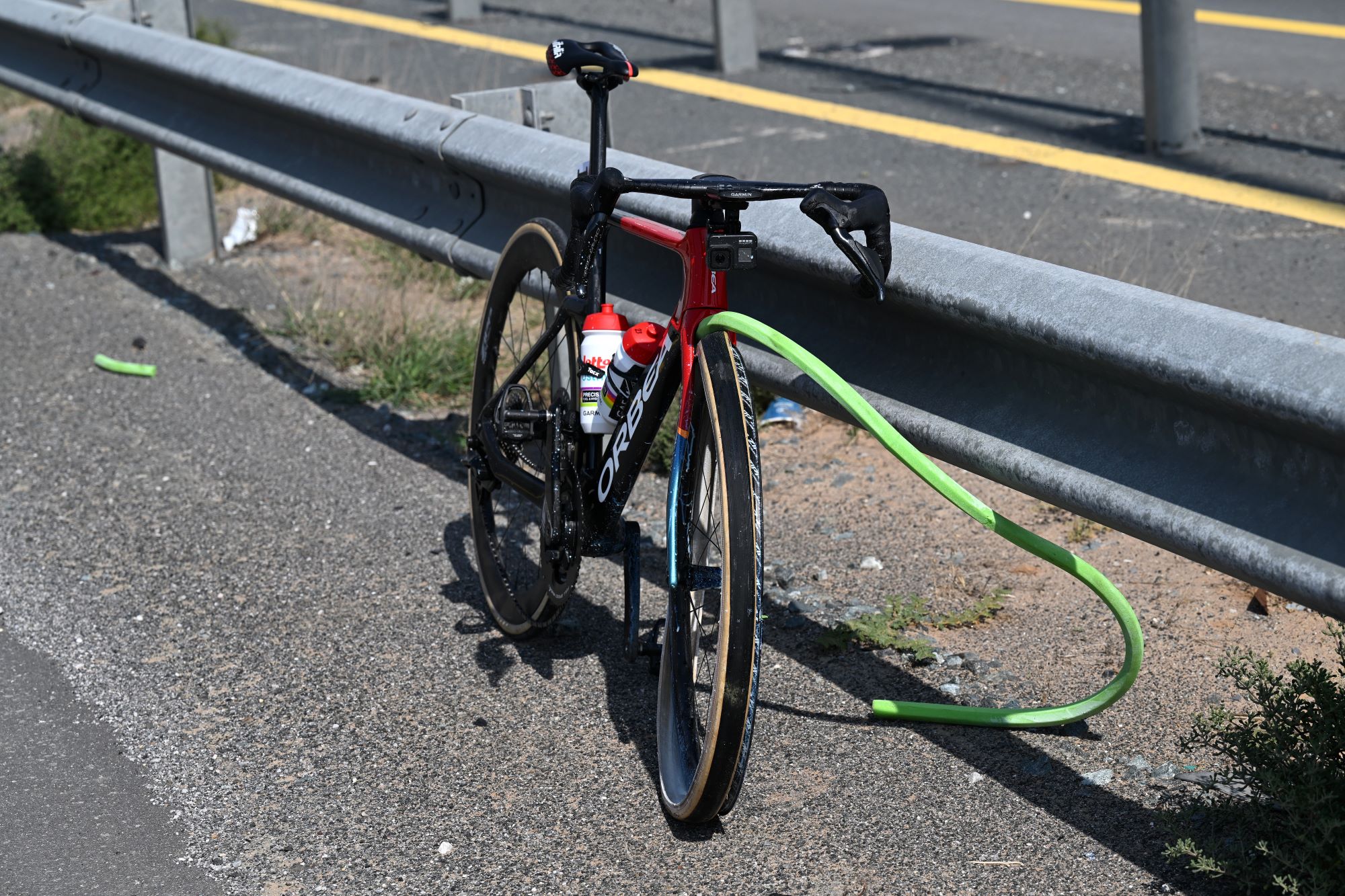 UCI to review hookless rims ‘as a matter of urgency’
UCI to review hookless rims ‘as a matter of urgency’Review follows Thomas De Gendt’s heavy crash at men’s UAE Tour
By Tom Thewlis
-
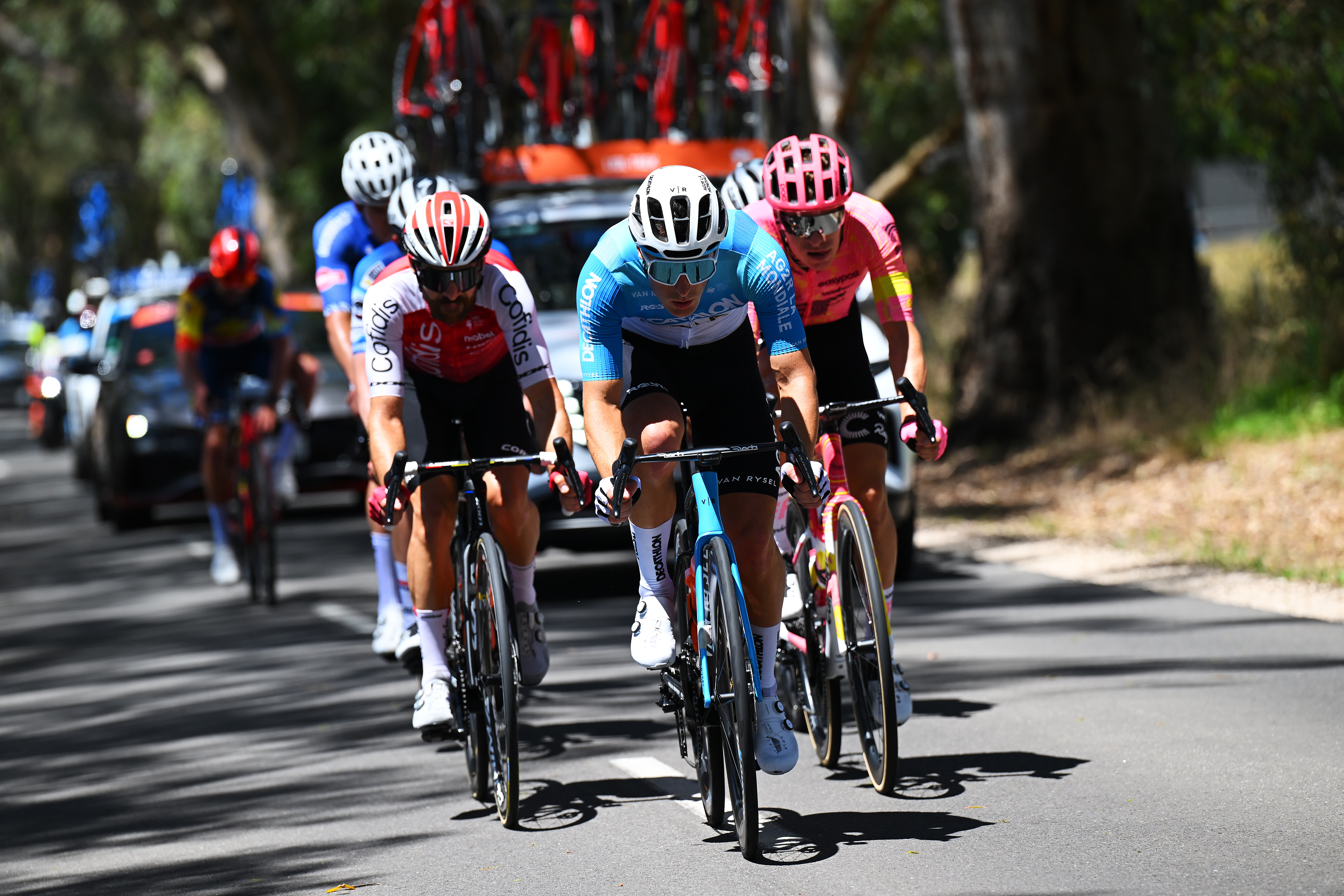 French WorldTour pro cyclist suspended for anti-doping ‘abnormalities’
French WorldTour pro cyclist suspended for anti-doping ‘abnormalities’Franck Bonnamour's biological passport is under investigation by the UCI
By Tom Davidson
-
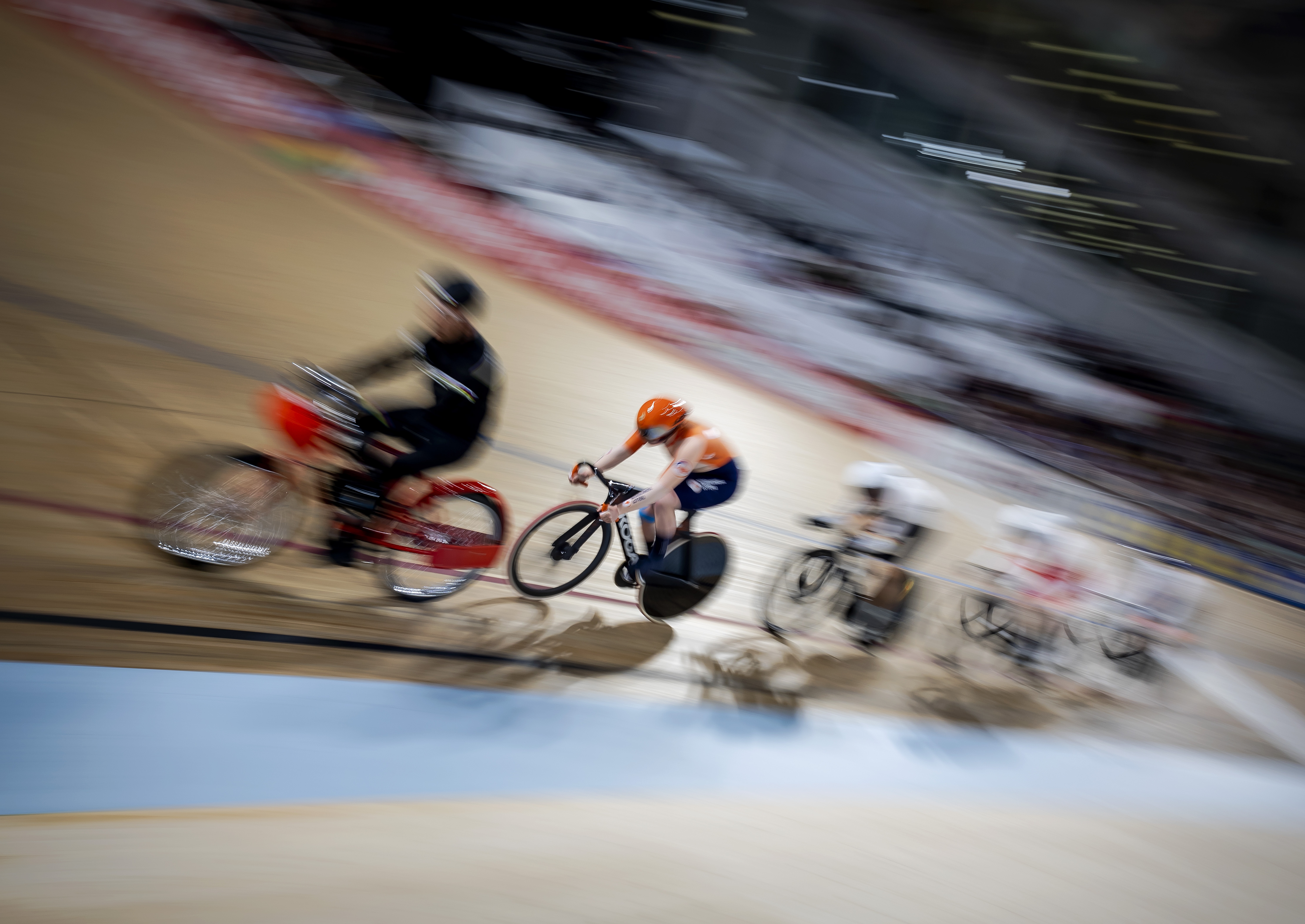 UCI rules new track cycling series a ‘forbidden event’ and threatens to fine riders
UCI rules new track cycling series a ‘forbidden event’ and threatens to fine ridersRiders are at risk of fines and suspension if they compete in the planned DerbyWheel
By Tom Davidson